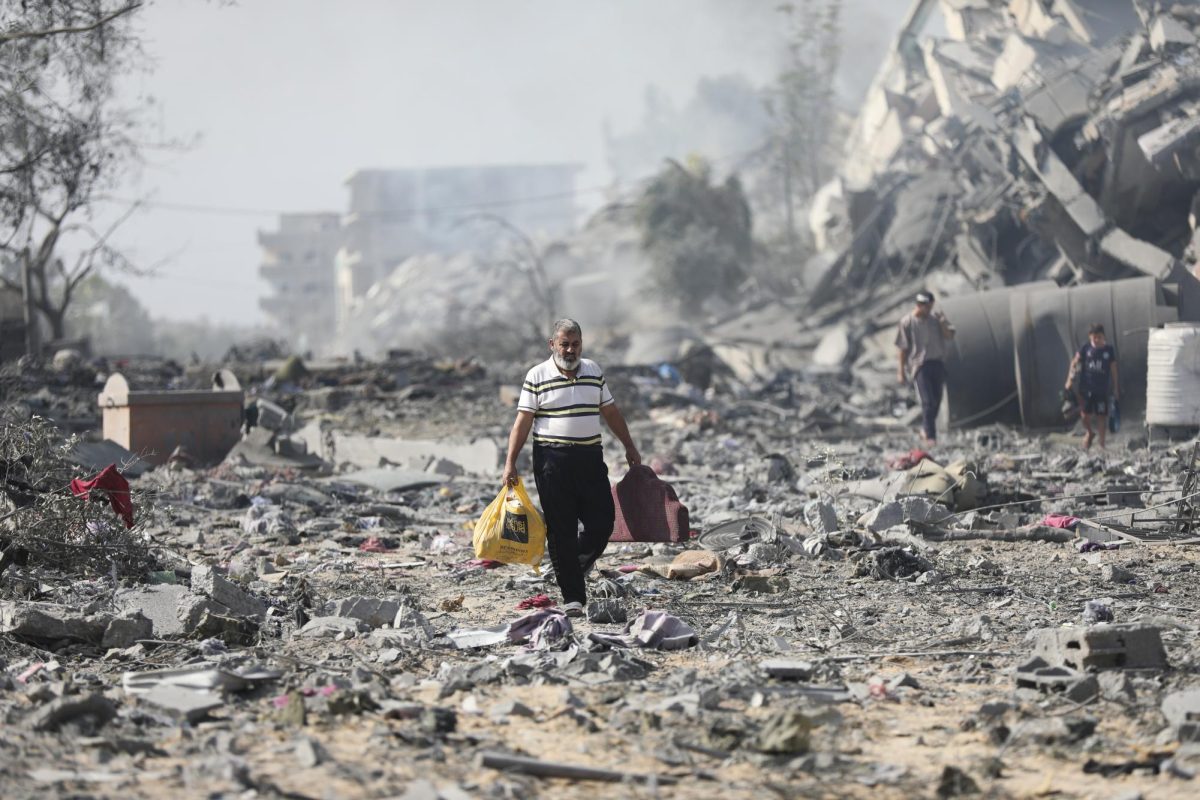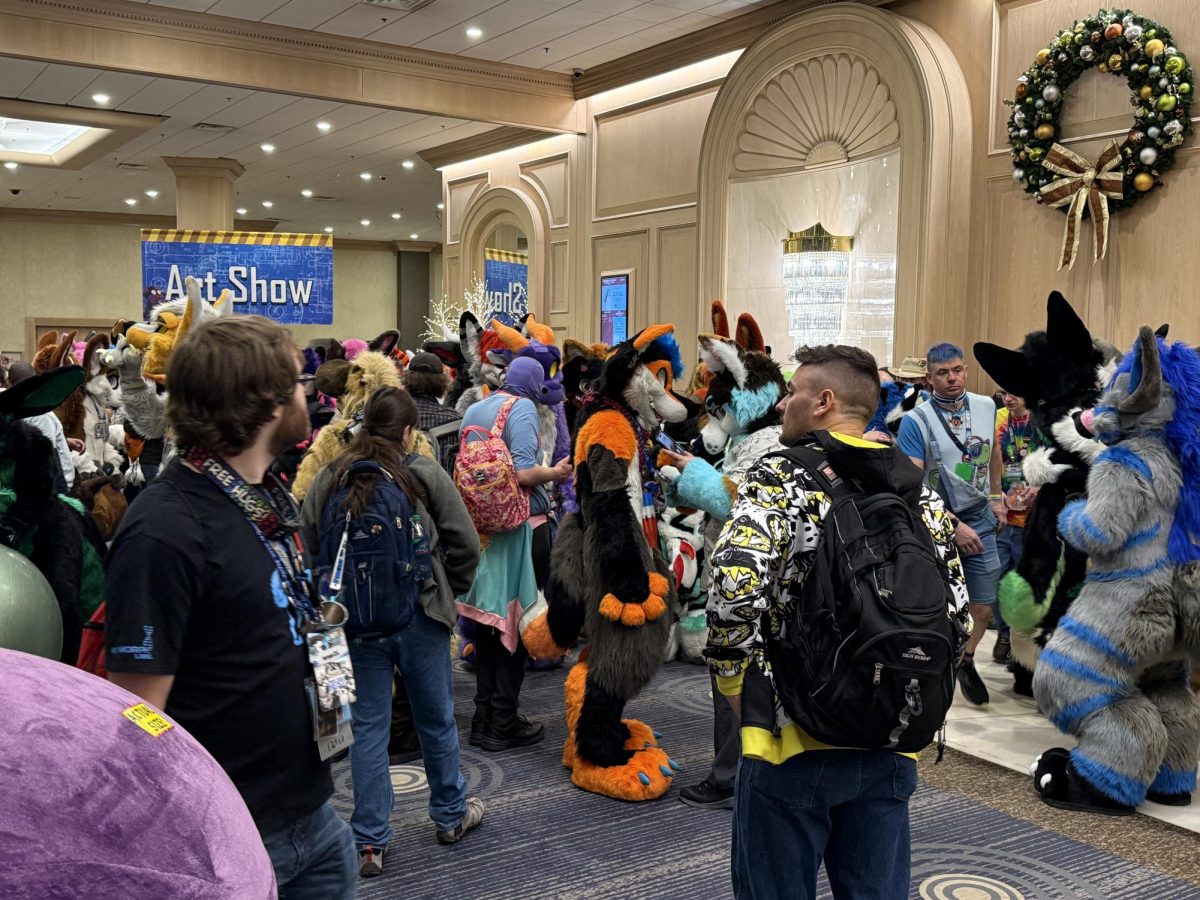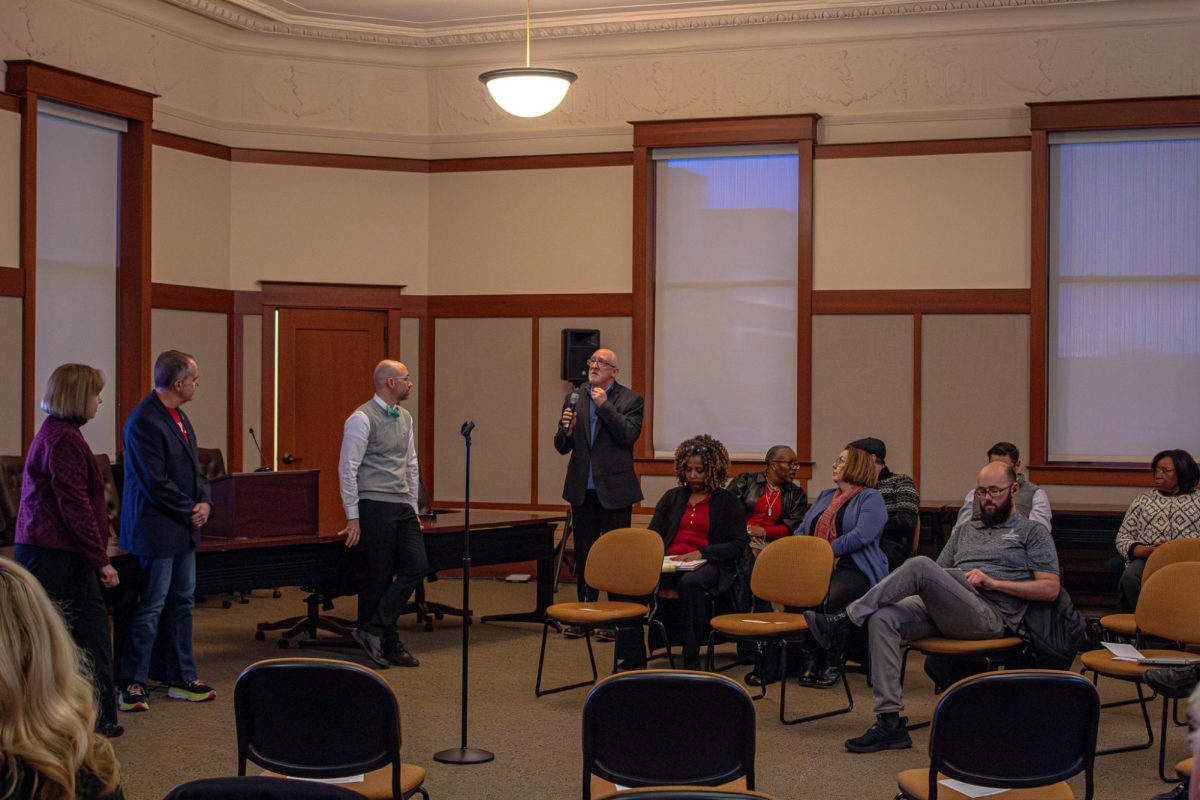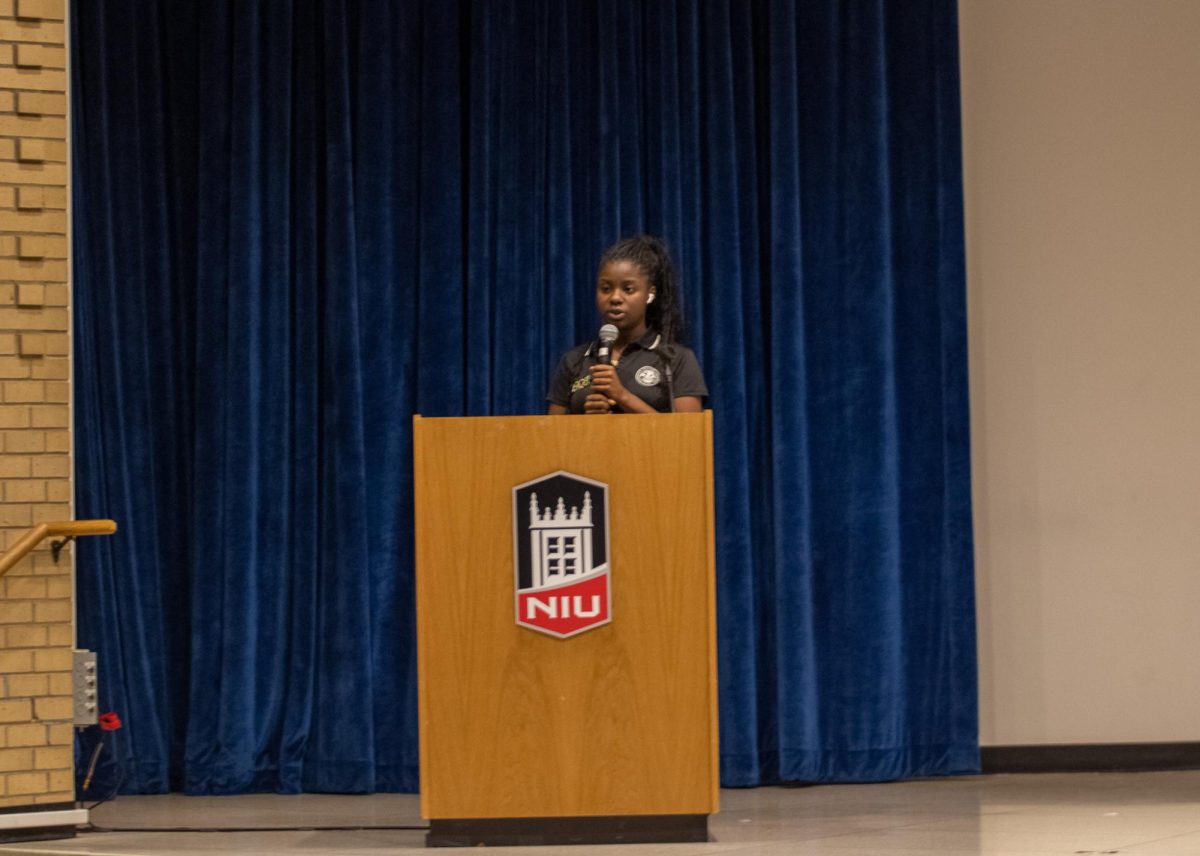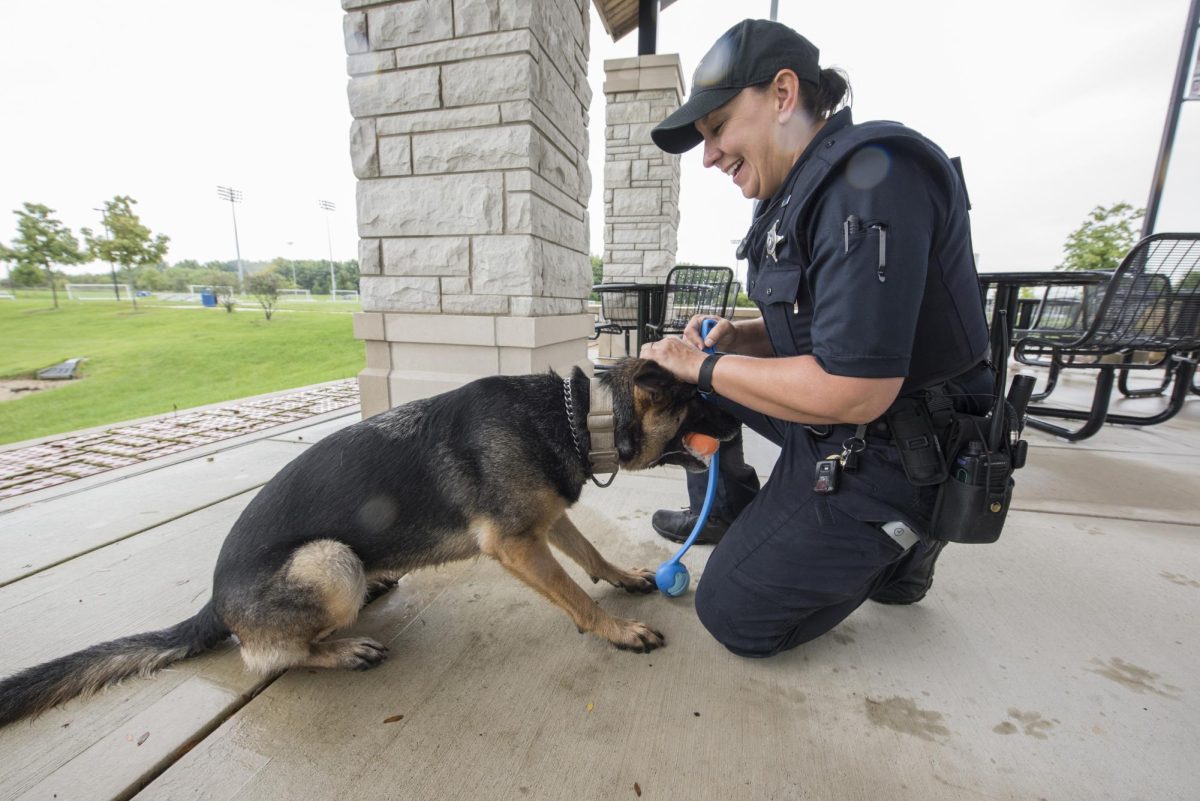Editor’s note: The intention of this article is to give insight into how academics at NIU are reacting and responding to the conflict. This article does not reflect the opinions of Northern Star staff.
DeKALB – As the death toll passed 5,000 after nearly two weeks in the conflict between Israel and Hamas, NIU professors offered insights on the dynamics of the war.
The recent escalation of the conflict began after a surprise attack from Hamas on Oct. 7, according to the Associated Press. The attack included an invasion into Israel. Two hundred fifty people were killed, 1,500 wounded and soldiers and civilians were taken hostage, according to Israeli media.
ABU BAKARR BAH
Abu Bakarr Bah, chair of NIU’s Department of Sociology, said the way the conflict is understood depends on how the beginning of the conflict is defined.
“Palestinians and Jews or Israelis have actually been fighting for this space or this piece of land in that area since the end of the second World War,” Bah said. “So, the Israeli state was established there, and there were already Palestinians and Arab countries surrounding the actual state of Israel. It is a war that has been going on for decades, especially since the 1960s.”
Bah said different narratives exist in arguments surrounding Israel. The points of origin for the narratives vary from biblical times to the post-World War II relocation of Jewish people to Palestinian challenges to Israel’s existence as a country.
Israel has expanded its settlements over time, moving Palestinians into a smaller area and occupying the land.
“Occupation is a form of colonial rule,” Bah said. “In international relations, it means one group is coming and ruling another people.”
Israel’s occupation of Gaza involves a blockade of what goes in and out and restricts the movement of citizens, according to the Associated Press.
“The bottom line is that it is a system of oppression no matter what you think about the reasons for it,” Bah said. “What has been going on for the past two decades or more is actually the Israeli occupation. It is a conflict about land – it’s not about anything else.”
Bah said conventional warfare is fought between two countries that both have standing armies and follows rules of war. Militant groups often engage in asymmetric warfare, which is between a country and a less powerful entity that is not a country.
“The state of Israel has a conventional military,” Bah said. “The Palestinians, in this case Hamas, have a militant group that is actually fighting for Palestinian rights.”
Bah said terrorism is the intentional targeting of civilians, and there is a distinction between terrorist organizations and militant groups.
“Typically, what happens is that when a group of people are fighting or when you have an organization that is fighting against a group that you think are on the wrong, they’re easily labeled terrorists,” Bah said. “If you follow U.S. history and other places, easily you will see Black Panther movements are called terrorist organizations. The African National Congress in South Africa during apartheid was called a terrorist organization.”
The U.S. currently has Hamas listed on its Designated Foreign Terrorist Organization list.
Hamas is not on a list of entities sanctioned by The United Nations Security Council.
Bah said there are two dimensions to how the label of terrorist is used.
“Those who support Israel will call them a terrorist organization,” Bah said. “That actually has two dimensions to it. One is just to delegitimize the organization in general. Sometimes also it is because militant liberation fighting organizations will use asymmetric warfare, meaning that it’s a guerrilla kind of fight.”
From this perspective, Bah said Hamas is a militant group that engages in acts of terrorism.
“Hamas is actually a liberation fighting organization. It’s a militant organization fighting for the liberation of Palestine,” Bah said. “Do they commit acts that you can say they are terrorist acts? Sure, but just like every other entity involved in war commits terrorist acts.”
Bah said the situation is tragic.
“I think it is important to note the multiple layers of tragedy here on both sides,” Bah said. “How you get out of this thing, I think, it is never an easy thing.”
CHES THURBER
Ches Thurber, an associate professor of political science at NIU, said Hamas’ attack was a strategy to bring attention back to Palestine and to take advantage of disruption within Israeli courts.
“The ongoing discussions about a potential peace deal between Saudi Arabia and Israel along the lines of what the UAE (United Arab Emirates), Bahrain and Israel had signed a few years ago. Hamas probably wanted to disrupt that kind of peace deal, try to make it not happen, as well as try to exploit these fissures within domestic Israeli politics,” Thurber said.
Thurber said Hamas’ attack was a response to the state of peace negotiations.
“But that being said, I see those as kind of small symbols of a bigger phenomenon, which is that the Palestinian issue had not been at the forefront of political leaders’ attention regionally or globally in a number of years,” Thurber said. “There’s been no progress on peace negotiations.”
Thurber said an outcome that maintained the status quo challenged Hamas’s existence.
“I think the Israeli government believed that they could contain violence from Hamas, not negotiate with the Palestinians,” Thurber said. “Either Hamas or the PLO (Palestinian Liberation Organization), which is the group that is the leader in the West Bank region, and we’re just going to, over time, continue to maintain a blockade of Gaza, continue to occupy the West Bank and gradually increase the territory that it was directly controlling through the expansion of settlements. This represented an existential threat to Hamas.”
Thurber said the response from Israel’s government indicates they are no longer considering diplomacy.
“I struggle to envision that kind of solution right now,” Thurber said. “It seems quite clear that the Israeli government’s policy is to defeat Hamas, that some kind of ceasefire or negotiated settlement would only result in giving Hamas the opportunity to rest, rearm and do this again some number of years down the road.”
The fighting has left a death toll of more than 5,000 people in the span of two weeks, according to the Associated Press.
“If you had been able to travel through time and give me the newspaper headlines from today 10 days ago and asked me if this is something that I thought would happen, I would have said ‘no way,’” Thurber said. “‘Hamas is not capable of this.’ Even Israel’s own security and intelligence forces were caught very much off guard by this attack.”
Since the initial attack, Israel ordered the evacuation of 1.1 million civilians from Northern Gaza last week, indicating the Israeli Defense Forces are going to mount an aggressive ground offensive, according to the Associated Press.
Thurber said the evacuation order is a sign that Israel is going to use overwhelming force in Gaza in the coming days.
“It is going to use means that aren’t able to distinguish between Hamas fighters and innocent Palestinian civilians,” Thurber said. “They’re asking civilians to get out of the way even though that in and of itself is both a very difficult thing to do.”
Since the evacuation order was given, civilians have been using routes that were designated safe to travel for a small window of time by Israel’s military, according to the Associated Press.
“We’re talking about 1 million people that need to uproot themselves and move in what is already a dangerous situation,” Thurber said. “I’m afraid that is their effort to try to say that they did what they could to protect civilians before what I assume will be a further escalation of military attacks on Gaza.”
Thurber said it’s important to acknowledge the tragedy on both sides of the war.
“Human life is valuable everywhere and violence against civilians is always horrible,” Thurber said. “We can, at the same time, recognize the horrific humanitarian suffering that Palestinians have experienced for decades while calling out deliberate military attacks on civilians as morally wrong and an affront to human rights.”
EMILY MCKEE
Emily McKee is an associate professor of anthropology and said it’s important to understand the current events’ context.
“There has been an ongoing decades-long situation where Palestinians have been living without self-representation and without statehood; and in some cases, more clearly in the West Bank, still under direct occupation and direct settler colonialism,” McKee said. “But Gaza is also a part of that and being controlled. All of this is important as context. I think it’s important that none of this is saying any particular actions are justified, like Hamas’ actions of murdering civilians. This is simply understanding how and why things are happening, and I think it’s really hard in news coverage, often to distinguish between when context is being given to understand why things are happening versus when context is given to justify things. But, I think that context is really important.”
McKee said a lack of resources in Gaza is concerning.
“People are dying in Gaza because of bombings,” McKee said. “But what we don’t hear and don’t know as much now, but is a real risk in the coming days, is that people are going to be dying for lack of clean water and for lack of food if humanitarian aid doesn’t get in. So, that’s a huge concern as well.”
Since the interview with McKee, Israel has said it would allow Egypt to deliver aid to Gaza, according to the Associated Press.
McKee said access to water is an ongoing issue.
“They’re going to be limited to either if they had happened to stock up anything bottled, maybe being able to use that for as long as they have it,” McKee said. “And then beyond that, the only water that would be available would be either potentially water from a well, which wouldn’t have been treated because there’s no energy to treat it, or potentially water from the sea.”
McKee said Hamas’ motive to prevent Israel from being recognized as a country does not represent all Palestinians.
“Hamas is aiming to have a Palestinian state that doesn’t have protection for Israel as a state,” McKee said. “That’s not the case for all Palestinians, and that’s not the case for all Palestinian government factions, but Hamas specifically, their larger goal, is to take over control of the region. It’s important to note that that’s Hamas’s goal, right? That is not Palestinian’s goal more broadly. Their goal is to weaken Israel.”
McKee said Hamas has had various roles in Gaza.
“Hamas is one of many factions that is both a political faction and a resistance movement,” McKee said. “To some extent, a social aid organization that has played many roles. But, it is one of many across Palestine. The U.S. defines it as a terrorist organization. Palestinians have not had any say in who governs them since 2007, and Hamas has continued to hold control of the basic elements of government as well as militant action there. But, they are not the only ones operating out of Gaza.”
McKee said it is important to remember lives are at stake in this conflict.
“One last point is, as we’re reading headlines about politicians’ statements and strategy and all of that, I hope we don’t lose sight of the fact that these are human beings living and dying,” McKee said. “And so the stakes are really high and really human.”
In response to the conflicts, NIU’s division of International Affairs sent an email to students on Oct. 12.
“Over the past several days, we have watched the violence and loss of life in Israel and Palestine with deep concern and sadness,” said Kerry Wilks, associate vice president for International Affairs and dean of the Graduate School; John Acardo, senior associate vice president and chief Human Resources officer; and Clint-Michael Reneau, vice president for Student Affairs, in an email to NIU students. “Our Division of International Affairs has extended support to students affiliated with the region.”
International students, faculty and staff can seek support from International Student and Scholar Services by calling 815-753-1346 or emailing [email protected].
Students that need help can also contact the Center for Student Assistance by calling 815-753-8300 or emailing [email protected].



